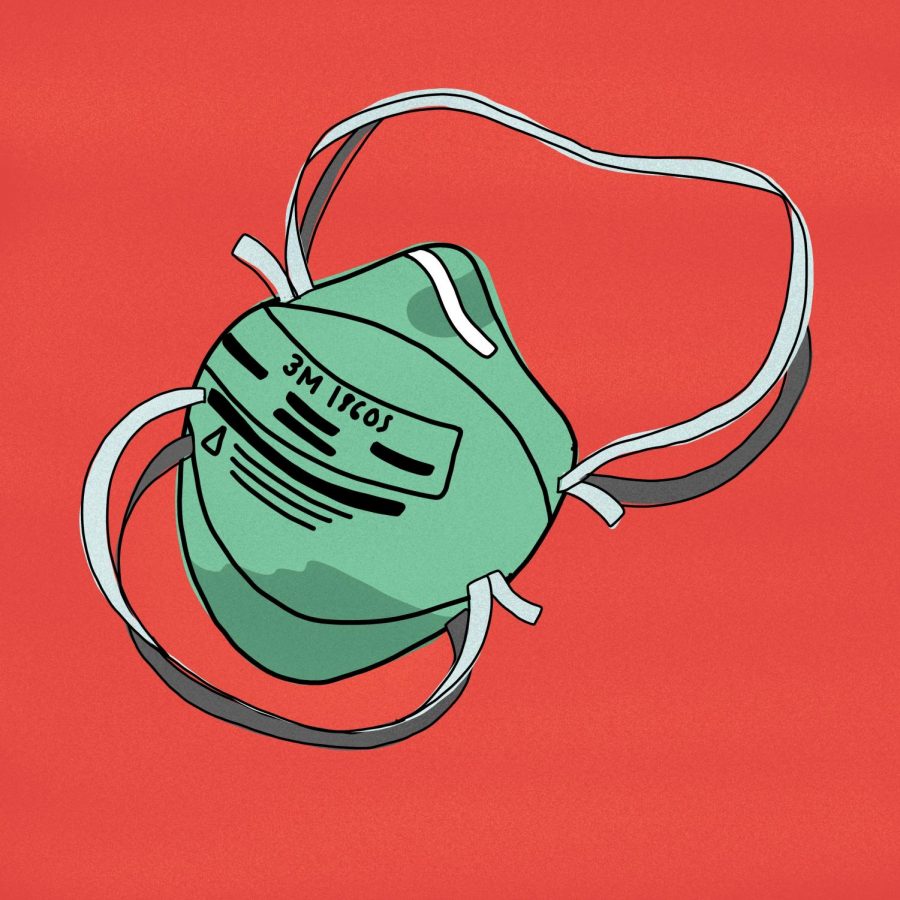Essential employees continue to hold community together
April 21, 2020
While many students and staff members have left campus in the wake of the coronavirus, the community’s essential workers have needed to remain in town.
Sarah Sung, a graduate student in Business, was unable to return home to her family in Wheeling, Illinois. Sung, who worked at Carle Foundation Hospital as a healthcare technician in the intensive care unit, worried about potentially infecting her parents back home.
“In the case that I have a few days off, I would [usually] go back home and stay with my parents,” Sung said. “I’m not able to do that since I’m scared of giving them coronavirus.”
While she didn’t think she had the virus, she acknowledged the potential risk of being a carrier. Sung mentioned she was not the only one staying away from her family and that some of her coworkers had to self-isolate as well. She and her coworkers have been preparing for an emergency situation where personal protective equipment is no longer available and have been learning how to fashion makeshift equipment.
“Unfortunately, across the entire country, PPE, which is the protective equipment we wear, (has been) in high demand, so we have had to conserve,” Sung said. “Carle has done a great job of finding different forms of PPE that we aren’t used to but is still protecting us.”
Get The Daily Illini in your inbox!
While there weren’t as many severe cases in Champaign County as they were in Cook County, individuals have tested positive for the virus on her floor.
“We have this box (that resembles) a small tanning bed that has radiation in it. You can put small items like your M95 mask or your phone in there and it will kill or inactivate the coronavirus ribosome,” Sung said.
Carle Foundation Hospital is taking the necessary precautions to prevent germs and bacteria from entering and leaving the hospital; however, Sung often works directly with patients on her floor. The chances of passing germs to one another is high.
Sung is among a number of students who are still going into work during the pandemic. Despite being immunocompromised, Jessica Andrews, another student with a dual degree in LAS and Social Work, still shows up to her job at Rosecrance regularly. Andrews worked closely with clients in the group-home setting.
“Because of the type of program this is and how vulnerable they are as a population, they’re not allowed to go visit their families during the quarantine, they can’t go out for walks in the mornings and nights and clients have to have their temperatures taken,” Andrews said. “It’s just really sad because it’s a mental health job and a big part of preserving mental health is engaging with other people and being outside, but [our clients] can’t do that. These people need it the most, so it’s just really frustrating.”
The nature of Andrews’ job required her to be there in person and not showing up wasn’t an option for her. Being immunocompromised, Andrews was concerned about her health as she was especially susceptible to the coronavirus, but said her conviction in what she did every day is what kept her going.
However, because Andrews’ healthcare providers have been unable to put their finger on exactly what autoimmune disorder she has, she hasn’t been receiving any treatment which makes her increasingly susceptible. Nonetheless, Andrews has a solid support system and continues to take it all one step at a time.
“Rosecrance is trying, there’s just not a lot that they can do for a group home employee,” Andrews said. “You can’t really ‘social distance’ in a group-home setting very well, so there hasn’t been a limit on how close or how far you can be to a client.”
Before this week, Andrews was only required to wear surgical gloves when handling medication. However, as of this past Friday, her employers have had her and her coworkers wear masks to limit the spread of germs.
On top of continuing to go into work, Andrews had to keep up with schoolwork. With her busy schedule and the stress of everything going on, she found it difficult to stay on top of things at first.
“The first couple of weeks I was really behind because I was an RA living in the residence halls which closed down, so I had to move into an apartment,” she said. “I told one of my teachers, and she said that for the rest of the semester, my assignments would be due whenever I got to them. That way my teachers have been really incredible.”
The University has its own set of essential employees still working on campus. Robin Kaler, the associate chancellor of public affairs, said in an email that those who have been maintaining the cleanliness of campus facilities, conducting research on fighting COVID-19, preparing food in the residence halls and providing medical care at McKinley have all been continually doing their jobs.
Those who carry out essential services have been following CDC guidelines. Employees have been rotating work schedules to minimize people in a certain area at any given time.
Kaler said an announcement regarding the University’s essential employees was issued on March 22. It said employees working remotely who cannot perform their normal duties remotely must remain available for work and provide as much service as possible. They must “complete online required training, maintain availability for remote participation in meetings and monitoring of email.”
The announcement also said these employees will be paid for their work even if the options and opportunities for them to perform that service have been exhausted. This includes hourly positions where employees will be paid for their expected number of hours per week prior to March 15. This pay will continue until the expected end date (for student hourly positions, May 15).







